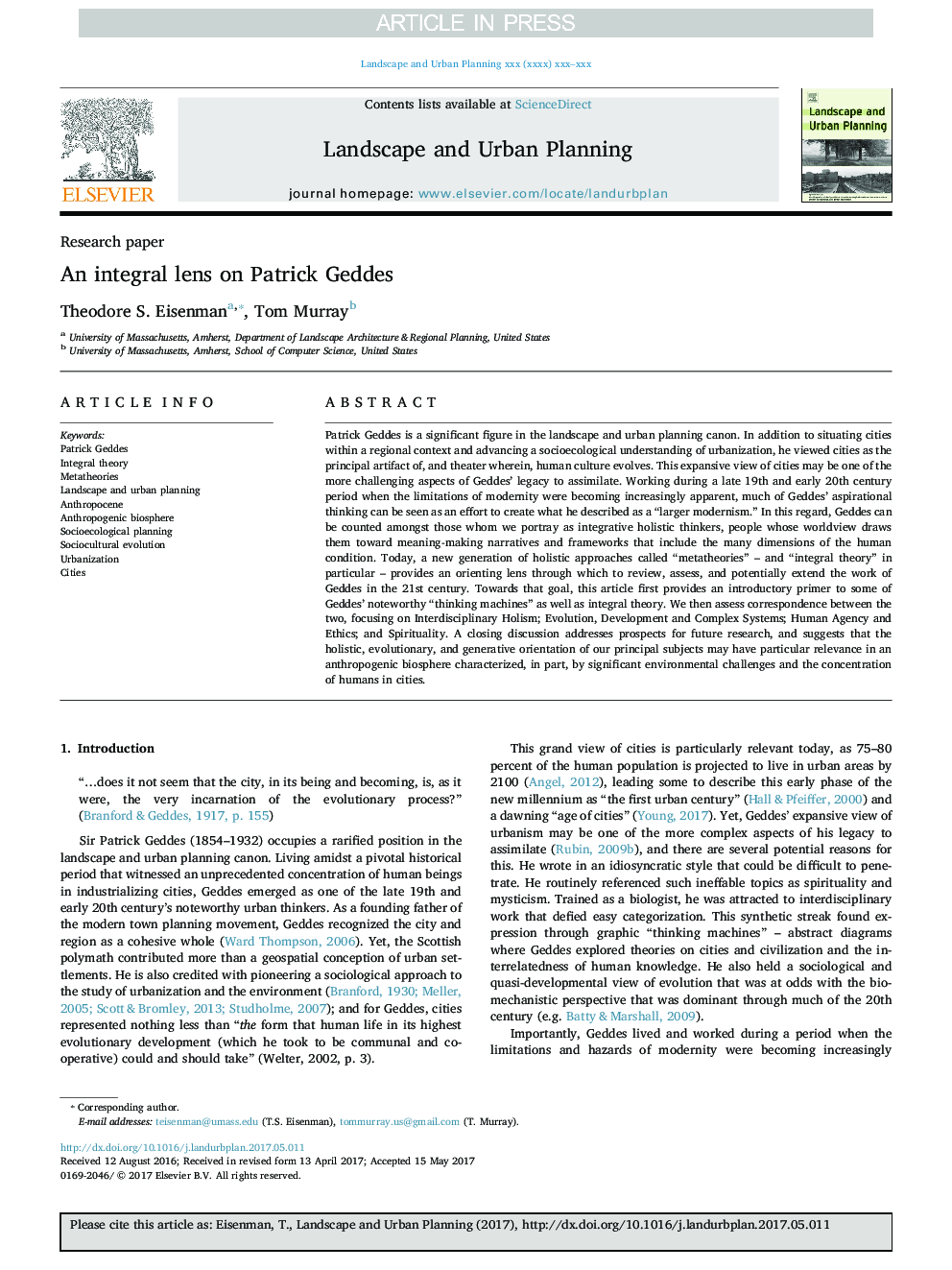| کد مقاله | کد نشریه | سال انتشار | مقاله انگلیسی | نسخه تمام متن |
|---|---|---|---|---|
| 5114995 | 1484592 | 2017 | 12 صفحه PDF | دانلود رایگان |
عنوان انگلیسی مقاله ISI
An integral lens on Patrick Geddes
ترجمه فارسی عنوان
یک لنز یکپارچه در پاتریک گدس
دانلود مقاله + سفارش ترجمه
دانلود مقاله ISI انگلیسی
رایگان برای ایرانیان
کلمات کلیدی
پاتریک گودس، تئوری یکپارچه، متا تئوری ها، چشم انداز و برنامه ریزی شهری، انترپوکسن، بوسفور انسانی برنامه ریزی اجتماعی و اقتصادی، تکامل جامعه فرهنگی، شهرنشینی، شهرها،
موضوعات مرتبط
علوم زیستی و بیوفناوری
علوم کشاورزی و بیولوژیک
بوم شناسی، تکامل، رفتار و سامانه شناسی
چکیده انگلیسی
Patrick Geddes is a significant figure in the landscape and urban planning canon. In addition to situating cities within a regional context and advancing a socioecological understanding of urbanization, he viewed cities as the principal artifact of, and theater wherein, human culture evolves. This expansive view of cities may be one of the more challenging aspects of Geddes' legacy to assimilate. Working during a late 19th and early 20th century period when the limitations of modernity were becoming increasingly apparent, much of Geddes' aspirational thinking can be seen as an effort to create what he described as a “larger modernism.” In this regard, Geddes can be counted amongst those whom we portray as integrative holistic thinkers, people whose worldview draws them toward meaning-making narratives and frameworks that include the many dimensions of the human condition. Today, a new generation of holistic approaches called “metatheories” - and “integral theory” in particular - provides an orienting lens through which to review, assess, and potentially extend the work of Geddes in the 21st century. Towards that goal, this article first provides an introductory primer to some of Geddes' noteworthy “thinking machines” as well as integral theory. We then assess correspondence between the two, focusing on Interdisciplinary Holism; Evolution, Development and Complex Systems; Human Agency and Ethics; and Spirituality. A closing discussion addresses prospects for future research, and suggests that the holistic, evolutionary, and generative orientation of our principal subjects may have particular relevance in an anthropogenic biosphere characterized, in part, by significant environmental challenges and the concentration of humans in cities.
ناشر
Database: Elsevier - ScienceDirect (ساینس دایرکت)
Journal: Landscape and Urban Planning - Volume 166, October 2017, Pages 43-54
Journal: Landscape and Urban Planning - Volume 166, October 2017, Pages 43-54
نویسندگان
Theodore S. Eisenman, Tom Murray,
